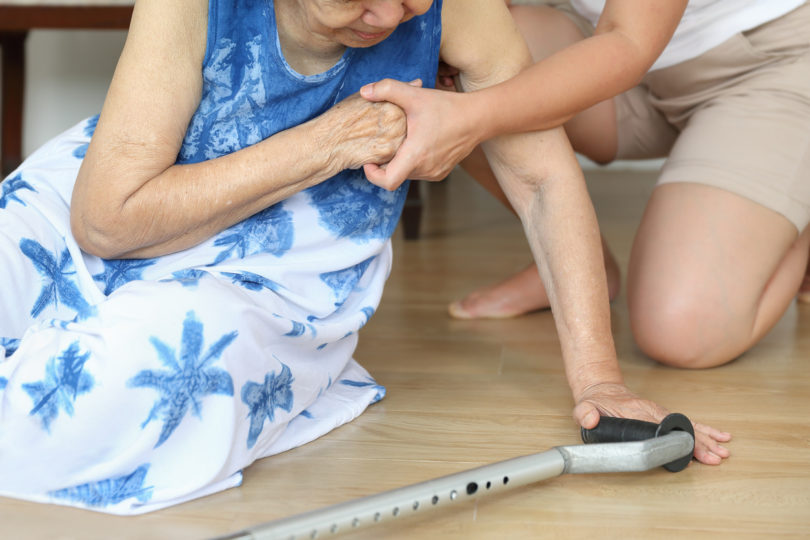Most older adults know somebody who’s had serious consequences from a fall, whether an injury, a long stay in a rehab facility or even death. About one in three adults over age 65 fall every year. Results can include head trauma, hip fractures and loss of independence. Even those who escape serious injury may develop an increased fear of falling, resulting in a more restricted and compromised lifestyle.
The good news is you can do many things to decrease your chances of falling and up the odds of a long, healthy and adventurous life.
Exercise
Exercising regularly can significantly improve your balance. Activities that focus on balance, such as tai chi and yoga, are especially beneficial. Do movements that simulate losing your balance and then recovering. It is the skill you’ll need—recovering your balance instead of falling.
Strengthening your leg muscles can also reduce fall risk, especially your quadriceps and the plantarflexors and dorsiflexors that move your ankles. Multi-component training is key, according to the American Council on Exercise. For example, you could combine physical and cognitive training by practicing heel to toe walking while counting backwards from 100. Or you could combine two physical tasks, such as standing on one leg while tossing a lightweight ball from hand to hand.
For best results, do your balance exercises before your resistance or flexibility exercises. When your muscles are tired, balancing is even more difficult.
Assess Your Home
People get accustomed to the way their homes are arranged and may not think to adapt their surroundings to age-related changes. But small fixes can make a big difference. Houses are often full of tripping hazards. Here are a few of the most common problems and solutions:
- Toe catching on a throw rug? You might be safer without rugs, or by adding a non-slip backing.
- Move furniture back to give you more space to safely navigate rooms.
- Beware of cords and wires. Coil them or tape them to the wall to avoid tripping.
- Hire an electrician to install more outlets and thus improve your cord management.
- Grab bars make toilets and showers much easier to use safely.
- Banisters on stairways should be sturdy.
- Add strips of colored tape to stairs to help you see where each stair ends.
Vision and Med Check
As people age, vision often suffers. And diminished vision can cause balance problems. An annual eye checkup can help catch changes before they trip you up.
Medications can also affect your balance. Both over-the-counter and prescription meds may have side effects, like drowsiness or dizziness, that make you more prone to falling. Read labels and ask your pharmacist.
Take a Fall Prevention Seminar
Many senior centers and homecare agencies offer free fall prevention seminars. Sometimes organizations team up to help seniors and advance ongoing research. See if such an opportunity exists in your area to assess your fall risk and get some personalized tips to decrease your chance of fall-related injuries.



